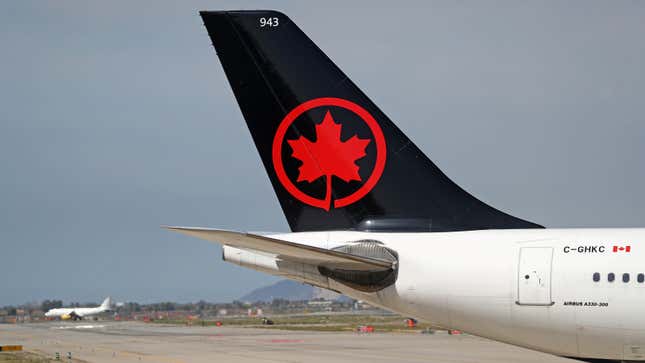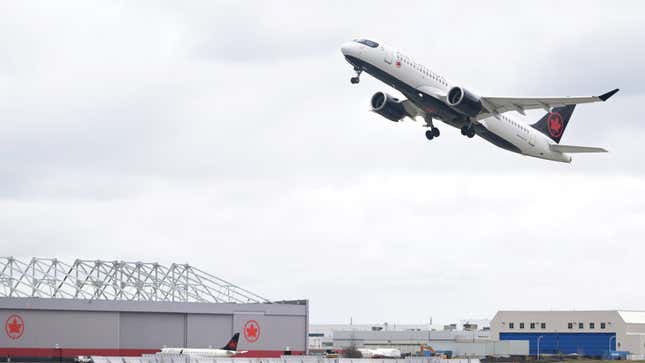
The robots are coming for our jobs, there are now machines that assemble cars, robots for packaging your favorite Tequila and even devices that can write blogs for you. But now, a piece of artificial intelligence has landed Air Canada in hot water after writing checks the airline couldn’t cash.
Air Canada is one of several major airlines that offers discounted flights for passengers dealing with bereavement. However, the booking process for these offers requires phone calls, death certificates and a few other hoops to jump through.
According to a report from Ars Technica, when passenger Jake Moffatt’s grandmother died he looked to Air Canada for advice on its bereavement fares. To find out how it all worked, Moffatt asked the airline’s AI-powered chatbot how to go about booking such flights. The chatbot told him that he could book the flight immediately and request the refund within 90 days of his flight.
That, however, is not how Air Canada offers its discounts, so when Moffatt tried to claim his money back the airline said no. At first, they offered him a $200 voucher to make up for the mix up, but that wasn’t enough for Moffatt as he’d just followed the orders of his AI overlord. As Ars Technica reports:
In reality, Air Canada’s policy explicitly stated that the airline will not provide refunds for bereavement travel after the flight is booked. Moffatt dutifully attempted to follow the chatbot’s advice and request a refund but was shocked that the request was rejected.
Moffatt tried for months to convince Air Canada that a refund was owed, sharing a screenshot from the chatbot that clearly claimed: “If you need to travel immediately or have already travelled and would like to submit your ticket for a reduced bereavement rate, kindly do so within 90 days of the date your ticket was issued by completing our Ticket Refund Application form.”
Initially, Air Canada argued that a refund wasn’t warranted as the details of its bereavement fares could be found on its site, and the airline argued that the chatbot had previously linked to those pages. However, Moffatt was having none of it and filed his case with Canada’s Civil Resolution Tribunal.

The case, which is thought to be the first time a Canadian company has argued against its own chatbot software, eventually found in favor of Moffatt. It found that he had “no reason” to believe one part of the airline’s website and not another. As Ars Technica explained:
Tribunal member Christopher Rivers, who decided the case in favor of Moffatt, called Air Canada’s defense “remarkable.”
“Air Canada argues it cannot be held liable for information provided by one of its agents, servants, or representatives—including a chatbot,” Rivers wrote. “It does not explain why it believes that is the case” or “why the webpage titled ‘Bereavement travel’ was inherently more trustworthy than its chatbot.”
Now, Air Canada has been ordered to pay Moffatt for the whole ordeal. The court ordered that the airline must cough up $812 in damages, reports Forbes. The payout comprises a $480 partial refund on the cost of Moffatt’s original airfare, which cost CA$1,640.36, or about $1,216 south of the border.
Moffatt was awarded further damages to cover interest on the airfare and his tribunal fees.